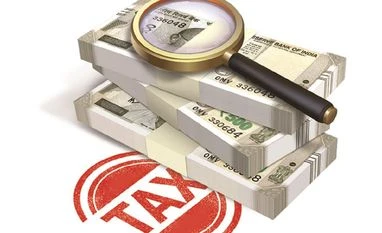As many as 50-60 reporting entities (REs), mainly co-operative banks, nidhi companies, forex dealers, and sub-registrars dealing in immovable properties have come under the income-tax (I-T) department’s scanner.
The tax department has prepared a list of reporting entities that have failed to file specified financial transaction (SFT) reports in the past two financial years for spot and physical verification.
“These reporting entities did not file SFT reports regarding certain high-value dealings for the reporting period financial years 2021-2022 and 2022-23, and calendar years 2021 and 2022. Also, some of the reportable accounts filed were not accurate,” a government official said.
Scrutiny of REs follows unusual defaults in filing certain transactions, especially related to cash deposits and credit card purchases in the past 2-3 years. The department is of the view that monitoring compliance by reporting entities for submission of transactions is critical for widening and deepening the tax base.
The tax department is in the process of issuing notices to these entities under Section 133 (6), which deals with obtaining information for verification of a transaction.
SFT is an annual report that certain prescribed entities (banks, non-banking lenders, companies issuing dividends, and issuers of debentures, bonds and shares) have to file with the tax department regarding transactions above a specified monetary threshold.
Separately, tax authorities are also finalising a standard operating procedure (SOP) for prescribed financial institutions (custodians and depository) which are required to maintain and report on account holders “resident” in foreign counterparts. This is to curb defective filing about account holders, said two government officials in the know.
For FY23, the last date to file a statement of financial transactions was May 31, 2023. “The gaps in information have been identified and accordingly a list has been prepared,” another official said. Delay in filing SFT may entail a penalty of up to Rs. 1,000 for each day of default. Non-filing or filing inaccurate statements may also lead to a penalty of Rs. 5,000.
“In the light of 360-degree reporting and analysis of financial information carried out by the tax department, it is natural for the department to expect proper compliance,” said Sudhir Kapadia, senior tax partner EY India.
“This process has served two purposes — one to act as a deterrent to taxpayers prone to under-report their income and second to ensure that tax base properly reflects the value addition in the economy which enables continuance of moderate tax rates by the government,” Kapadia added.
Notably, information collected via SFT will help the tax authorities to pre-fill the tax return form of assessees and encourage voluntary compliance.
The department also uses information from third parties to check with assessees whether their reported income has any inaccuracy, under the e-verification scheme.
Last week, the tax department carried out spot verification on the premises of Tamilnad Mercantile Bank in Tuticorin, for not filing certain SFT returns.
The department said that the bank failed to report major transactions, which included cash deposits of over Rs. 2,700 crore involving more than 10,000 accounts, specified credit card payments involving total transaction value of over Rs. 110 crore, dividend distributed amounting to more than Rs. 200 crore, and shares issued worth over Rs. 600 crore.
In the recent past, too, verification was conducted on two cooperative banks in Uttarakhand, and transactions exceeding a few thousand crores, not reported by them, were identified.
Mind the gap
- Unusual defaults in filing reports on certain high-value transactions, especially related to cash deposits and credit card purchases, by some REs
- These cases pertain to FY22, FY23, and CY21, CY22
- A list of REs has been prepared for spot verification and further scrutiny. These include cooperative banks, NBFCs, and forex dealers
- Notices being issued since June to potential defaulters, which also face penalties
- The move is seen as critical for widening and deepening the tax base
Unlock 30+ premium stories daily hand-picked by our editors, across devices on browser and app.
Pick your 5 favourite companies, get a daily email with all news updates on them.
Full access to our intuitive epaper - clip, save, share articles from any device; newspaper archives from 2006.
Preferential invites to Business Standard events.
Curated newsletters on markets, personal finance, policy & politics, start-ups, technology, and more.
)